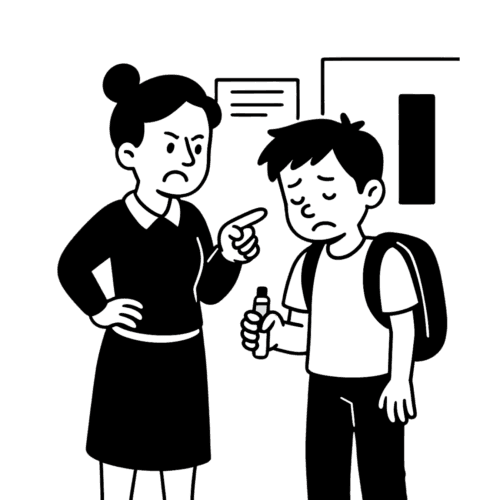
The Senedd has voted to support the Legislative Consent Motion for the Tobacco and Vapes Bill, marking a …
The Senedd has voted to support the Legislative Consent Motion for the Tobacco and Vapes Bill, marking a …
The Wales Tobacco Control Alliance is calling on Members of the Senedd to back the Legislative Consent Motion …
New findings from ASH Wales’ Annual Adult Population Survey 2025 show strong public support for tougher tobacco laws …
Parents and carers across Wales are facing new challenges when it comes to nicotine. Whether it’s disposable vapes, …
To mark National Clean Air Day (19th June), we’ve teamed up with National Trust Cymru and RSPB to …
This year’s World Environment Day theme is clear: #BeatPlasticPollution. And while bottles, bags and straws often grab the …

If your child has been caught vaping at school, you might feel shocked, frustrated, or unsure what to do next. You might be worried about what this means for their future or feel judged by the school or other parents. That’s completely normal. But this moment can be used as a turning point not a disaster.
If the school has contacted you, your first instinct might be to panic or feel angry. Take a moment to relax before responding. It helps to keep in mind:
Young people often experiment, especially when influenced by peers
Being caught doesn’t mean you’ve failed as a parent
There’s an opportunity here to understand what’s going on, not just to punish
Most schools now have strict policies on vaping, including:
No vaping or smoking on school grounds
Confiscation of devices
Possible suspension or behaviour points
These rules are in place to keep everyone safe, but each school handles things differently. It’s OK to ask the school:
What exactly happened?
Was this the first time?
How are they planning to support your child after the incident?
You’re allowed to be part of the conversation not just on the receiving end of it.
Some parents understandably want to collect the vape to see what their child was using. But most schools won’t return confiscated vapes especially if they suspect it’s an illegal or unregulated device. That’s because it could be unsafe or even unlawful to possess.
It’s okay to ask what kind of device it was and whether the school plans to dispose of it.
This is a good time to:
Check if your child is using regularly or just experimenting
Look for signs of nicotine dependence (e.g. irritability, cravings, using in secret)
Get support if needed don’t wait until things escalate
If they are vaping or smoking regularly, the earlier you help them stop, the better. You can find practical support on our Helping Your Child Quit page, and young people aged 12+ can also contact Help Me Quit Wales.
Some parents feel the punishment was too harsh or they worry it’s damaged their child’s confidence. If that’s the case:
Stay respectful in your communication
Ask for a meeting if needed
Emphasise that you’re focused on supporting change, not defending the behaviour
You might say: “We understand there’s a consequence, and we’re taking it seriously at home too. But we would also like to talk about how the school can support [child’s name] going forward.”